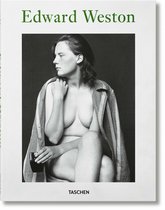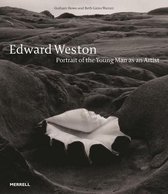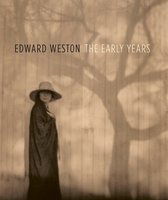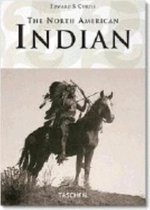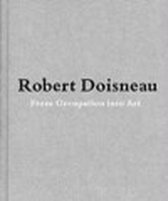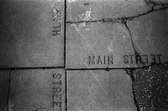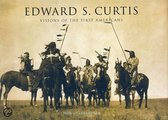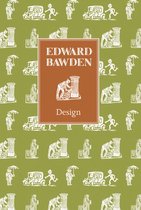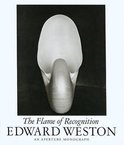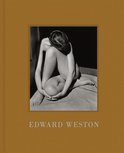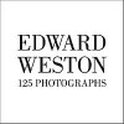Edward Weston The Flame of Recognition
Afbeeldingen
Sla de afbeeldingen overArtikel vergelijken
- Engels
- Paperback
- 9780893815332
- 01 juni 2004
- 104 pagina's
Samenvatting
Edward understood thoughts and concepts which dwell on simple mystical levels. His work--direct and honest as it is--leaped from a deep intuition and belief in forces beyond the apparent and the factual. He accepted these forces as completely real and part of the total world of man and nature, only a small portion of which most of us experience directly. As with any great artist or imaginative scientist, the concept is immediate and clear, but the ''working out'' takes time, effort, and conscious evaluations.
Edward Weston's work stood for him as a complete statement of the man and his art. He favored the grand sweep of creative projects. He was aware of the loneliness of the artist, especially the artist in photography, photography where out of the uncounted thousands of photographers only a handful of workers support the best photojournalism, illustration, documentation, and poetic expression. And it was Weston who accomplished more than anyone, with the possible exception of Alfred Stieglit, to elevate photography to the status of fine-art expression.
His approach bypassed the vast currents of pictorial photography, photojournalism, scientific-technical photography, and what is generally lumped together as ''professional photography'' (portraits of the usual ''studio'' kind, illustrations, and advertising). Through his kind of photography he opened up wonderful world of seeing an doing.
Many were the students and experts whose lives and concepts were profoundly modified by Edward's non-aggressive, non-preaching, but ever-comprehending approach. ''Seeing'' the Point Lobos Rocks was one thing, making wondrous pictures of them another thing, but encouraging another person to ''see'' something in his own way was the most important thing of all.
Edward's works need no evaluation here. I would prefer to join Edward in avoiding verbal or written explanations and definitions of creative work. Who can talk or write about the Bach Partitas? You just play them or listen to them. They exist only in the world of music. Likewise, Edward's photographs exist only as original prints, or, as in this Aperture monograph, in superb reproductions. Look at his photographs, look at them carefully, then look at yourselves--not critically, or with self-deprecation, or any sense of inferiority. Read the material from his Daybook and letters so carefully compiled, edited, and associated with the photographs by Nancy Newhall. You might discover through Edward Weston's work how basically good you are, or might become. This is the way Edward would want it to be.
--Ansel Adams, 1965In the years since Edward Weston passed away in Carmel, California, he remains in memory as a man of great spirit, integrity, and power. To me he was a profound artist and friend in the deepest sense of the word. Living, as I do now, within a mile of his last home, sensing the same scents of the sea and the pine forests, the grayness of the same fogs, the glory of the same triumphal storms, and the ageless presence of the Point Lobos stone, I find it very difficult to realize he is no longer with us in actuality.
Edward understood thoughts and concepts which dwell on simple mystical levels. His work--direct and honest as it is--leaped from a deep intuition and belief in forces beyond the apparent and the factual. He accepted these forces as completely real and part of the total world of man and nature, only a small portion of which most of us experience directly. As with any great artist or imaginative scientist, the concept is immediate and clear, but the ''working out'' takes time, effort, and conscious evaluations.
Edward Weston's work stood for him as a complete statement of the man and his art. He favored the grand sweep of creative projects. He was aware of the loneliness of the artist, especially the artist in photography, photography where out of the uncounted thousands of photographers only a handful of workers support the best photojournalism, illustration, documentation, and poetic expression. And it was Weston who accomplished more than anyone, with the possible exception of Alfred Stieglit, to elevate photography to the status of fine-art expression.
His approach bypassed the vast currents of pictorial photography, photojournalism, scientific-technical photography, and what is generally lumped together as ''professional photography'' (portraits of the usual ''studio'' kind, illustrations, and advertising). Through his kind of photography he opened up wonderful world of seeing an doing.
Many were the students and experts whose lives and concepts were profoundly modified by Edward's non-aggressive, non-preaching, but ever-comprehending approach. ''Seeing'' the Point Lobos Rocks was one thing, making wondrous pictures of them another thing, but encouraging another person to ''see'' something in his own way was the most important thing of all.
Edward's works need no evaluation here. I would prefer to join Edward in avoiding verbal or written explanations and definitions of creative work. Who can talk or write about the Bach Partitas? You just play them or listen to them. They exist only in the world of music. Likewise, Edward's photographs exist only as original prints, or, as in this Aperture monograph, in superb reproductions. Look at his photographs, look at them carefully, then look at yourselves--not critically, or with self-deprecation, or any sense of inferiority. Read the material from his Daybook and letters so carefully compiled, edited, and associated with the photographs by Nancy Newhall. You might discover through Edward Weston's work how basically good you are, or might become. This is the way Edward would want it to be.
--Ansel Adams, 1965
Productspecificaties
Inhoud
- Taal
- en
- Bindwijze
- Paperback
- Oorspronkelijke releasedatum
- 01 juni 2004
- Aantal pagina's
- 104
- Illustraties
- Nee
Betrokkenen
- Hoofdauteur
- Edward Weston
- Tweede Auteur
- Sarah M. Lowe
- Co Auteur
- Manfred Helting
- Hoofdredacteur
- Nancy Newhall
- Hoofduitgeverij
- Aperture
Vertaling
- Originele titel
- Edward Weston: Nudes
Overige kenmerken
- Editie
- New ed
- Extra groot lettertype
- Nee
- Studieboek
- Nee
- Verpakking breedte
- 213 mm
- Verpakking hoogte
- 8 mm
- Verpakking lengte
- 248 mm
- Verpakkingsgewicht
- 510 g
EAN
- EAN
- 9780893815332
Je vindt dit artikel in
- Categorieën
- Taal
- Engels
- Boek, ebook of luisterboek?
- Boek
- Beschikbaarheid
- Leverbaar
- Studieboek of algemeen
- Algemene boeken
Reviews
Negatief, positief, neutraal: we zetten een review altijd online. We controleren wel eerst of ’ie voldoet aan onze reviewvoorwaarden en niet nep is. We controleren ook of ’ie is geschreven door iemand die het artikel heeft gekocht via bol.com en zetten dit er dan bij. De controles gebeuren automatisch, al kijken er soms mensen mee. Bol.com betaalt niet voor reviews. Als een reviewer door een andere partij is vergoed, staat dit in de review zelf.
Negatief, positief, neutraal: we zetten een review altijd online. We controleren wel eerst of ’ie voldoet aan onze reviewvoorwaarden en niet nep is. We controleren ook of ’ie is geschreven door iemand die het artikel heeft gekocht via bol.com en zetten dit er dan bij. De controles gebeuren automatisch, al kijken er soms mensen mee. Bol.com betaalt niet voor reviews. Als een reviewer door een andere partij is vergoed, staat dit in de review zelf.
-
interessant fotoboek
Positieve punten
- Rijk geillustreerd
- Praktisch
- Heldere uitleg
Geschreven bij Edward Weston
Handig naslagwerk voor een cursus fotoanalyse. Heel mooie foto's.
Vond je dit een nuttige review?00 -
Kon beter
Geschreven bij Edward Weston
Dure verzameluitgave valt erg dunnetjes uit : Er zijn betere Edward Weston uitgaven aan betaalbaardere prijzen
Vond je dit een nuttige review?00
Kies gewenste uitvoering
Prijsinformatie en bestellen
De prijs van dit product is 16 euro en 95 cent. Dit is een tweedehands product.Paperback, (full-page) illustrations in b/w.; Paperback; New York : Aperture; 1993; 104 pagina's; [291454]
- Bestellen en betalen via bol
- 30 dagen bedenktijd en gratis retourneren
Alle bindwijzen en edities (3)
-
16,956 dagen
Levertijd
We doen er alles aan om dit artikel op tijd te bezorgen. Het is echter in een enkel geval mogelijk dat door omstandigheden de bezorging vertraagd is.
Bezorgopties
We bieden verschillende opties aan voor het bezorgen of ophalen van je bestelling. Welke opties voor jouw bestelling beschikbaar zijn, zie je bij het afronden van de bestelling.
Tooltip -
29,993 weken
Levertijd
We doen er alles aan om dit artikel op tijd te bezorgen. Het is echter in een enkel geval mogelijk dat door omstandigheden de bezorging vertraagd is.
Bezorgopties
We bieden verschillende opties aan voor het bezorgen of ophalen van je bestelling. Welke opties voor jouw bestelling beschikbaar zijn, zie je bij het afronden van de bestelling.
Tooltip -
138,006 dagen
Levertijd
We doen er alles aan om dit artikel op tijd te bezorgen. Het is echter in een enkel geval mogelijk dat door omstandigheden de bezorging vertraagd is.
Bezorgopties
We bieden verschillende opties aan voor het bezorgen of ophalen van je bestelling. Welke opties voor jouw bestelling beschikbaar zijn, zie je bij het afronden van de bestelling.
Tooltip
Rapporteer dit artikel
Je wilt melding doen van illegale inhoud over dit artikel:
- Ik wil melding doen als klant
- Ik wil melding doen als autoriteit of trusted flagger
- Ik wil melding doen als partner
- Ik wil melding doen als merkhouder
Geen klant, autoriteit, trusted flagger, merkhouder of partner? Gebruik dan onderstaande link om melding te doen.
